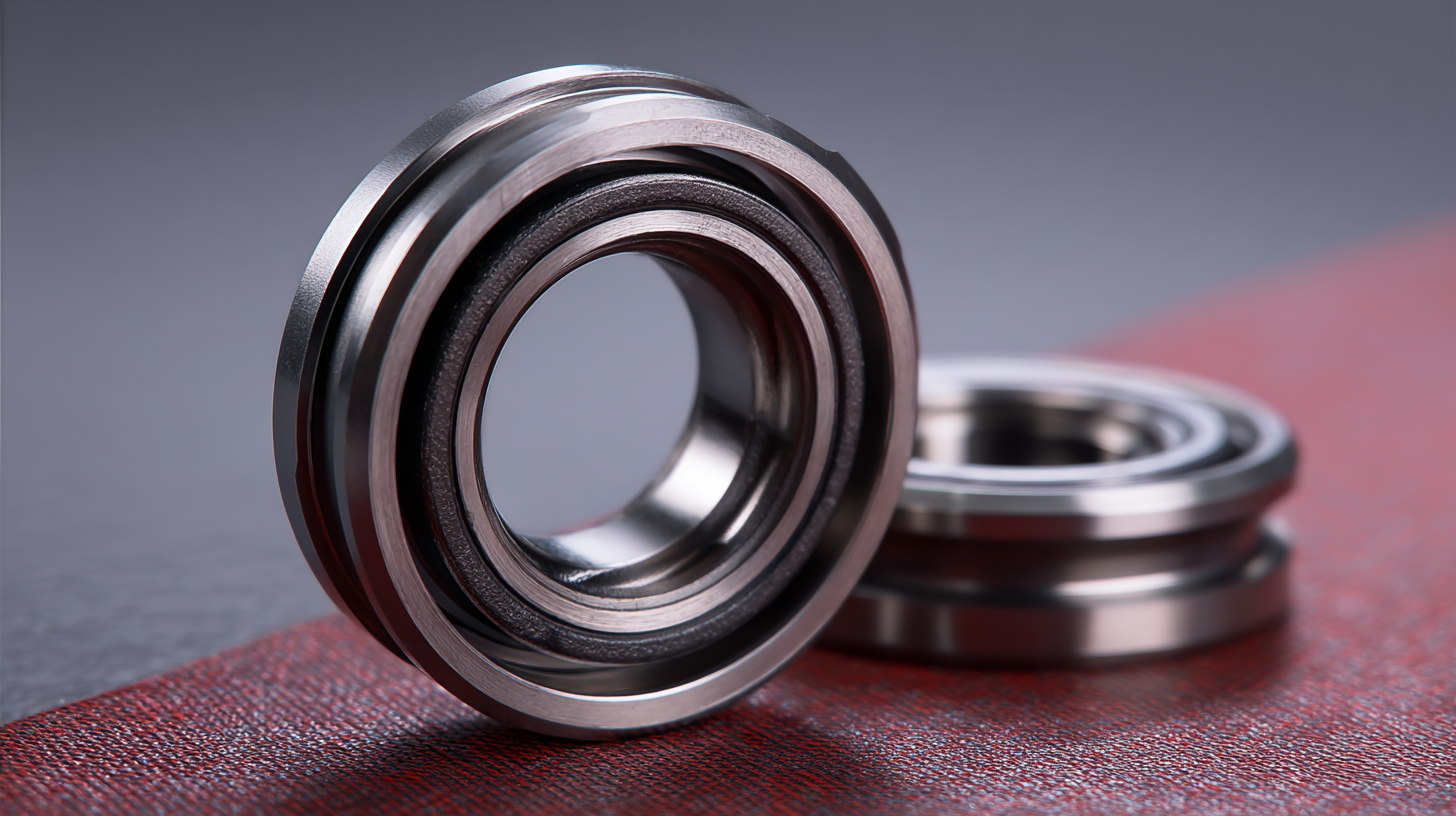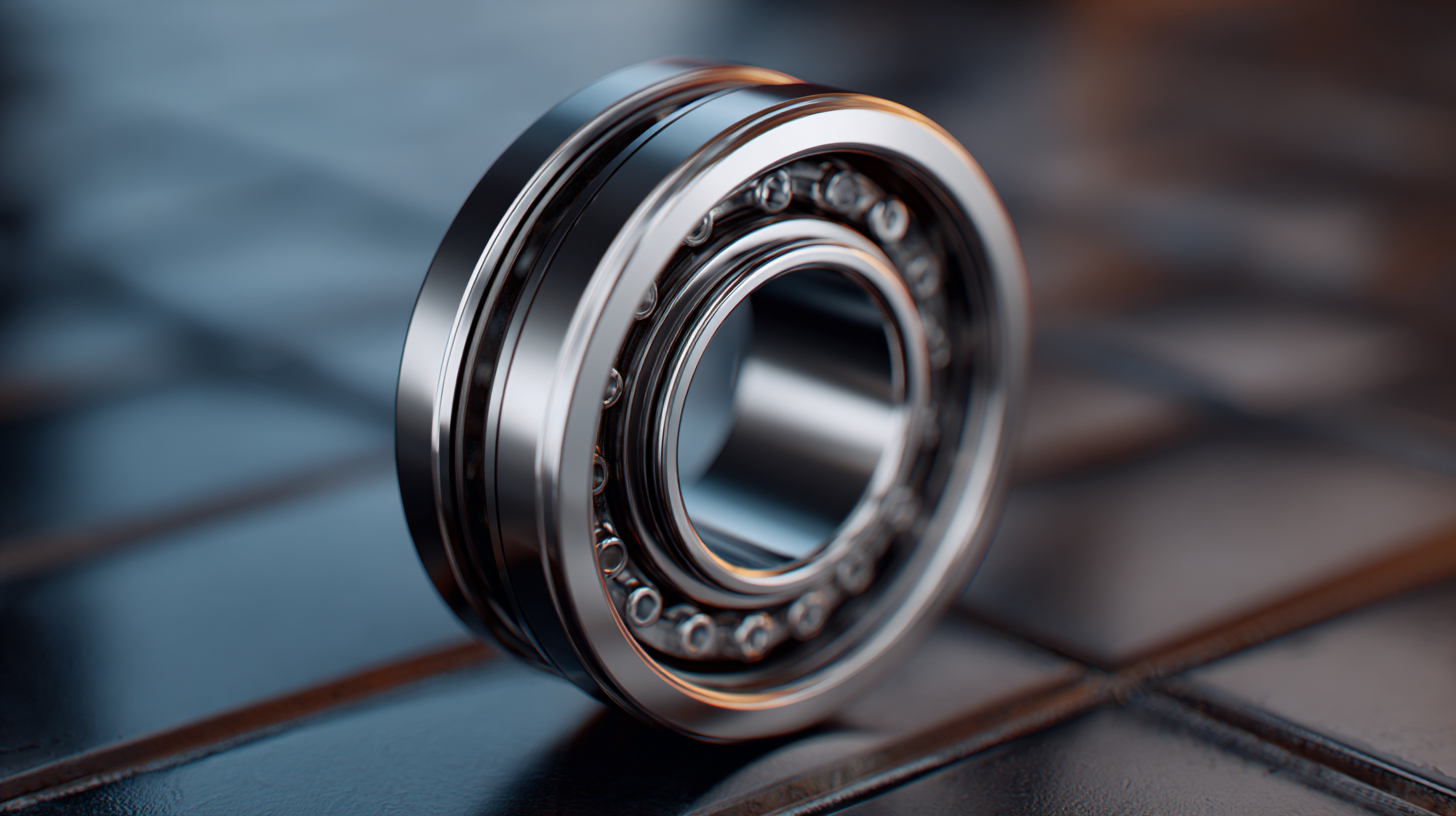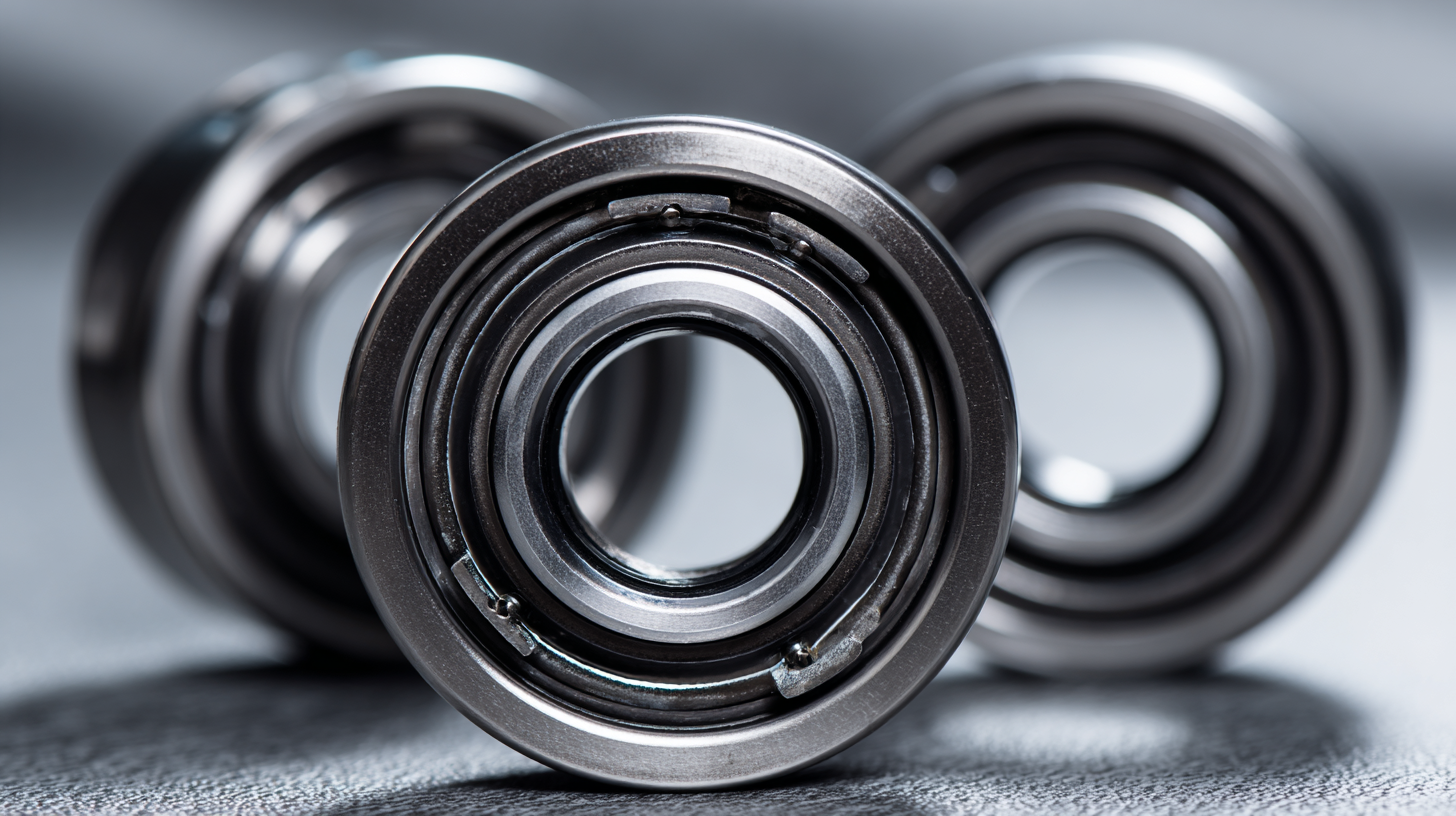Effective Solutions for Choosing the Best Thrust Ball Bearings for Your Business Needs
In the competitive landscape of industrial machinery, selecting the right components is critical for operational efficiency and longevity. Thrust ball bearings, known for their ability to accommodate axial loads while maintaining a high degree of reliability, have emerged as a vital component in various applications, ranging from automotive systems to heavy machinery.
According to a report by MarketsandMarkets, the bearing market is expected to grow significantly, with an estimated increase from $76.8 billion in 2020 to $108.4 billion by 2026, driven primarily by the rising demand in manufacturing and automotive sectors.
The strategic choice of thrust ball bearings can lead to enhanced performance, reduced maintenance costs, and improved overall equipment lifespan, making it essential for businesses to understand the benefits of different types available in the market.
This blog will explore effective solutions for selecting the best thrust ball bearings tailored to your business's unique needs.
Understanding Thrust Ball Bearings: Key Industrial Standards and Specifications
Thrust ball bearings are specialized components essential for handling axial loads in various industrial applications. Understanding the key industrial standards and specifications that govern these bearings is crucial for businesses that rely on their efficiency and reliability. According to the International Organization for Standardization (ISO), thrust ball bearings are categorized under ISO 281, which outlines the metrics for static and dynamic load ratings. These ratings help in determining the service life and load capacity of different bearing types, making it critical for businesses to select products compliant with such standards.
One key specification that businesses should consider is the bearing’s material composition. High-quality thrust ball bearings are typically made from chrome steel, delivering superior strength and resistance to wear under heavy loads. A report by the International Journal of Advanced Manufacturing Technology indicates that bearings made from high-performance materials can lead to a reduction in friction by up to 20%, ultimately enhancing operational efficiency. Additionally, factors such as the size, lubrication methods, and bearing arrangement can significantly influence performance. By comprehensively evaluating these specifications, companies can ensure they choose the right thrust ball bearings that align with their operational demands and industry standards.
Impact of Load Ratings on Thrust Ball Bearing Performance and Lifespan
When selecting thrust ball bearings for specific business applications, the impact of load ratings cannot be overstated. Load ratings dictate both the performance capabilities and the lifespan of the bearings. According to recent market analysis, the ball bearing market was valued at $25.24 billion in 2023 and is expected to reach $33.24 billion by 2032, growing at a compound annual growth rate (CAGR) of approximately 5.2%. This growth underscores the significant demand for reliable bearings that can sustain higher loads while minimizing wear and tear.
Recent investigations highlight that the performance of thrust ball bearings can be affected by factors such as voltage-induced damage on raceway surfaces. Such damage progression is critical to understand as it directly influences the bearing's operational efficiency and lifespan. Moreover, a novel biomimetic composite guiding surface has shown promising results in reducing friction and vibration, thus prolonging the bearing's life and optimizing its load capacity. By integrating advanced materials and understanding the implications of load ratings, businesses can enhance the performance and reliability of their machinery, ensuring smoother operations and reduced maintenance costs.
Impact of Load Ratings on Thrust Ball Bearing Performance and Lifespan
This chart illustrates the relationship between load ratings and the expected lifespan of thrust ball bearings under different load conditions. Higher load ratings typically correlate with longer lifespan, demonstrating the importance of selecting the appropriate bearings for specific applications.
Material Selection for Thrust Ball Bearings: Balancing Strength and Weight
When selecting thrust ball bearings for your business needs, material selection plays a critical role in achieving the right balance between strength and weight. The choice of material not only affects the performance of the bearings but also their longevity and reliability under various operational conditions. Common materials for thrust ball bearings include stainless steel, which offers excellent corrosion resistance and strength, and engineered plastics that provide lightweight options with good wear properties.
Evaluating the specific operational environment is essential when making material choices. For instance, if the bearings will be subjected to high temperatures or corrosive environments, selecting a material that can withstand these conditions while maintaining structural integrity is crucial. Additionally, advancements in composites and specialized alloys present new opportunities for enhancing bearing performance. As industries continue to evolve, staying informed about the latest materials and their respective benefits will empower businesses to make informed choices that align with both performance goals and weight considerations.
Assessing Tolerances and Clearances in Thrust Ball Bearings for Optimal Function
 When selecting thrust ball bearings for specific applications, assessing tolerances and clearances becomes critical. Industry data indicates that the performance of thrust ball bearings can be significantly affected by these parameters, leading to optimal operational efficiency and durability. According to a report by Freedonia Group, the proper clearance can enhance load capacity by up to 15%, demonstrating how precise measurements impact overall functionality.
When selecting thrust ball bearings for specific applications, assessing tolerances and clearances becomes critical. Industry data indicates that the performance of thrust ball bearings can be significantly affected by these parameters, leading to optimal operational efficiency and durability. According to a report by Freedonia Group, the proper clearance can enhance load capacity by up to 15%, demonstrating how precise measurements impact overall functionality.
Moreover, tolerances play a vital role in ensuring that the bearing operates smoothly under load. A study published in the Journal of Mechanical Engineering highlights that maintaining tight tolerances can reduce friction and wear, ultimately prolonging the lifespan of the bearing. For example, bearings with a tolerance of 0.01 mm can operate at a temperature rise of more than 10% lower than those with less accuracy. This exemplifies the importance of integrating precise engineering standards in thrust ball bearing selection, ultimately influencing machine performance and reliability in various industries.
Incorporating Industry Certifications: Ensuring Quality in Thrust Ball Bearing Selection
When selecting thrust ball bearings for your business, incorporating industry certifications into your decision-making process can significantly enhance the quality and reliability of your choices. Industry certifications, such as ISO 9001 and ABEC, serve as benchmarks that ensure manufacturers adhere to stringent quality management systems and precision standards. Choosing bearings that hold these certifications not only guarantees compliance with industry norms but also provides assurance that the products have been tested for performance and durability.
Moreover, paying attention to certifications can help you navigate the often complex landscape of bearing suppliers. Many manufacturers offer a vast array of products, but not all adhere to the same quality standards. By prioritizing suppliers with recognized certifications, you can reduce the risk of equipment failure and extend the lifespan of your machinery.
This is particularly crucial in high-stakes industries where precision and reliability are paramount. In essence, the right thrust ball bearings, backed by industry certifications, can significantly impact your operational efficiency and overall business success.



 When selecting thrust ball bearings for specific applications, assessing tolerances and clearances becomes critical. Industry data indicates that the performance of thrust ball bearings can be significantly affected by these parameters, leading to optimal operational efficiency and durability. According to a report by Freedonia Group, the proper clearance can enhance load capacity by up to 15%, demonstrating how precise measurements impact overall functionality.
When selecting thrust ball bearings for specific applications, assessing tolerances and clearances becomes critical. Industry data indicates that the performance of thrust ball bearings can be significantly affected by these parameters, leading to optimal operational efficiency and durability. According to a report by Freedonia Group, the proper clearance can enhance load capacity by up to 15%, demonstrating how precise measurements impact overall functionality.

